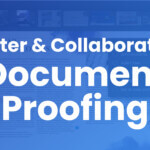When you’re working on a creative project it’s not uncommon to explore the many different directions you could take. Those directions could lead you to inspiration and eventually get the creativity flowing. Until…
…the questions start.
You start to think: Is this really the best approach? Is it original enough? Should I have followed a different path? Perhaps that would work better?
Soon enough, you find that you’re circling through these thoughts again and again, getting nowhere. It might feel like you’re simply carefully weighing your options, but overthinking could be holding you back more than you realize.
Thinking Deeply vs. Overthinking
Is thinking in depth about your project and considering all angles necessarily a bad thing?
Far from it.
Being able to consider lots of different possibilities (divergent thinking) and then evaluate them to identify the best one (convergent thinking) enables you to make better decisions. Both styles of thinking are vital parts of the creative process.
However, there’s a big difference between thinking deeply about a situation and overthinking it. Psychotherapist Natacha Duke describes that difference like this: “When a problem presents itself, brainstorming possible solutions is a positive coping strategy. With overthinking, what happens is that you ruminate, which is where you go over and over a problem again and again. But there’s no real resolution. You get caught up in the thinking loop and you end up where you started.”
In other words, if you find that you’re revisiting the problem repeatedly and you’re unable to act, you’re likely overthinking. But if you carefully consider many different solutions to the problem, pick one, and move forward with it, that’s productive creative thinking.
Why Do We Overthink?
There are many reasons why you might find yourself overthinking your work.
Fear of Uncertainty
Overthinking can be your brain’s attempt to cope with the uncertainty inherent in the idea of unfamiliarity. And that fear of the unknown is often a driving factor for anxiety and stress (which themselves perpetuate overthinking).
You never fully know how a creative project will turn out when you start or even during for that matter. You’ll inevitably wonder if you’ll be satisfied with the result.
Then, there’s time uncertainty – will you be able to spend long enough to do the idea justice and still deliver on time? How about the other people involved – how will they react?
Overthinking gives us an illusion of control in the face of all these unknowns. As psychologist Ema Tanovic explains: “We think about the possible outcomes of an uncertain situation in an attempt to somehow prepare.”
Analysis Paralysis
Closely linked to this fear of uncertainty is the panic caused by having too many possible options. Analysis paralysis during the creative process is common.
With limitless possibilities, you may find yourself weighing the pros and cons of them all before making a choice. All the possible choices can really weigh you down. Because there is never going to be a “perfect” option, there’s no natural endpoint for this speculation. This can feel overwhelming, leaving you frozen.
Habitual Thought Patterns
You may overthink simply because that’s what your brain is used to doing.
It’s easy for thought patterns to become habits. If you usually respond to a situation by trying to think through all possible outcomes, then your brain may default to that way of thinking whenever you encounter a new challenge.
How Overthinking is Killing Your Creativity
There’s evidence to suggest that thinking too much about a task may have a direct negative impact on your levels of creativity.
Because it’s so all-consuming, overthinking takes up valuable mental resources adding stress and anxiety. As well as being detrimental to your mental health, this process turns the act of creating into a negative, fearful experience.
If your instinct is to overanalyze every idea you have and second guess every choice you make, it can quickly undermine your creative confidence, and the satisfaction you get out of being creative. In turn, this leaves you disengaged with your creative work and more likely to avoid taking creative risks.
Overthinking can also easily turn into procrastination. Because it feels like you’re actively problem-solving and trying to find the best choice, it gives you the sense that you’re being productive. However, in reality, it could be keeping you from getting started and working to get on the right course.
Doing the Right Kind of Thinking
From putting limits on processing time to being more intentionally mindful of your creative process, there are some ways you can reduce the invitation for overthinking. The key here is to find ways to think deeply and widely about a creative project, without letting that stray into overthinking.
Limit Thinking Time
Having unlimited time to think is a perfect recipe for overthinking. Give yourself a set time to think about something, whether that’s a one-off period for ideation (after which you’ll move on) or a more regular slot in your schedule to mull over the project. Setting deadlines for each stage of your project could also help.
You will still probably find yourself asking “what if” and going over your decisions – that’s natural and even helpful (providing it doesn’t go too far). But if you can feel your thoughts starting to circle, remind yourself that “it’s done” and take steps to redirect your thoughts.
Ask Forgiveness, Not Permission
Productivity expert and author Ali Abdaal thinks you should tackle the fear of uncertainty head-on. As he explains: “Rather than sitting on that idea you have and overthinking the consequences you should do it and then (if needed) seek forgiveness.”
This may be easier to apply to personal creative projects as you’ll only have to ask for forgiveness from yourself if it doesn’t pan out. However, it’s worth keeping in mind as it may help you to become more comfortable with taking a trial-and-error approach to your ideas.
Reframe Your Thought Process
Practicing mindfulness encourages you to be more aware of your thought patterns, meaning you’ll have a better chance of spotting overthinking before it can take hold.
It also gives you a chance to reframe any unhelpful thoughts. For example, a study showed that when presented with two new medical treatments, one described as 95% effective and the other as 5% ineffective, we’re drawn to the first, positive-sounding framing of the data. The researchers, Nathan Furr and Susannah Harmon Furr, say that by using this behavior to your advantage and intentionally choosing to focus on the upsides instead of the down, you can reduce your fearful reaction to uncertainty.
Inject Some Objectivity
Use a framework when evaluating your ideas. That way you’ll be able to systematically review your ideas or choices and then compare them to make a confident choice (and stick with it!) rather than constantly wondering whether you’ve asked the right questions.
You can also develop strategies for introducing some objectivity at an appropriate point, limiting the anxiety you might be feeling about how others will react. You can then tailor your feedback process so that when you do share your work, you can ensure you’re getting the specific and targeted input you need.
Thinking Creatively Without Overthinking
Creativity is always going to involve a certain level of uncertainty. Considering possibilities and weighing the pros and cons is a vital part of the creative process. However, when that turns into cyclical, unproductive overthinking, it can delay your projects, drain your mental resources, and undermine your creative confidence.
Once you know how to watch out for overthinking, it should be much easier to think deeply without thinking too much.






